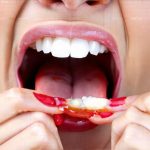In our fast-paced modern world, meals are often consumed quickly, prioritized for convenience rather than mindful enjoyment. We frequently gulp down food without fully registering its texture, flavor, or even how thoroughly we’re processing it. This habit of rapid eating can have subtle but significant consequences for our digestion, nutrient absorption, and overall well-being. It’s a seemingly small act – the simple process of chewing – that often gets overlooked despite being foundational to healthy eating practices.
The art of thorough chewing isn’t about following strict rules or counting chews per bite; it’s about cultivating awareness around how we consume food and recognizing the benefits of slowing down and fully engaging with our meals. This article will explore why this fundamental aspect of eating is so important, detailing the physiological processes involved and offering insights into incorporating more mindful chewing habits into daily life.
The Mechanics of Digestion Begin in the Mouth
The digestive system isn’t a monolithic entity that begins functioning solely in the stomach. In fact, digestion starts the moment food enters your mouth. Chewing is the first critical step, mechanically breaking down food into smaller pieces and increasing its surface area for enzymatic action. This initial breakdown not only makes swallowing easier but also prepares the food for more efficient processing further along the digestive tract.
Saliva, released during chewing, plays a vital role in this process. It contains enzymes like amylase which begins carbohydrate digestion and helps lubricate food for smooth passage down the esophagus. Properly chewed food mixes thoroughly with saliva creating a bolus that is easier to digest and absorb nutrients from.
Beyond Physical Breakdown: Signaling & Satiety
Chewing isn’t just about physically preparing food; it’s also crucial for signaling to your body that nourishment is on its way. The act of chewing stimulates the vagus nerve, a key component of the parasympathetic nervous system responsible for “rest and digest” functions. This stimulation triggers the release of digestive enzymes in the stomach and intestines, optimizing digestion.
Nutrient Absorption & Bioavailability
When food isn’t chewed adequately, nutrients remain locked within complex structures. Even healthy foods won’t provide their full nutritional benefit if they aren’t broken down sufficiently for absorption. The smaller the particles, the greater the surface area exposed to digestive enzymes, leading to improved nutrient bioavailability – meaning your body can actually utilize those vitamins and minerals effectively. This is particularly important for plant-based foods containing cellulose which requires significant breakdown to release trapped nutrients.
Improved Digestive Comfort & Reduced Bloating
Insufficient chewing forces the stomach and intestines to work harder to break down food. This can lead to indigestion, bloating, gas, and discomfort. By taking the initial burden off the digestive system through thorough chewing, you help ensure a smoother process and reduce the likelihood of these unpleasant symptoms. A less stressed digestive system also means better overall gut health which is increasingly recognized as linked to immune function and mental well-being.
Enhanced Satiety & Weight Management
Chewing thoroughly takes time, allowing your brain to register fullness before you’ve overeaten. It provides more time for hormonal signals related to satiety (feeling full) to reach the brain. Eating quickly often bypasses these signals, leading to consuming larger portions than necessary. By slowing down and chewing well, you can naturally regulate appetite and potentially support healthier weight management by allowing your body to recognize when it’s truly satisfied.
Ultimately, incorporating mindful chewing into our routine isn’t about adopting a rigid system but rather cultivating a more conscious approach to eating. It’s about appreciating the process of nourishment and recognizing that taking a few extra moments to chew can have far-reaching benefits for our physical comfort, nutrient absorption, and overall health. Simple adjustments like putting down your fork between bites, focusing on the flavors and textures of your food, and aiming to chew until the food reaches a near liquid consistency can all contribute to a more satisfying and beneficial eating experience.


















